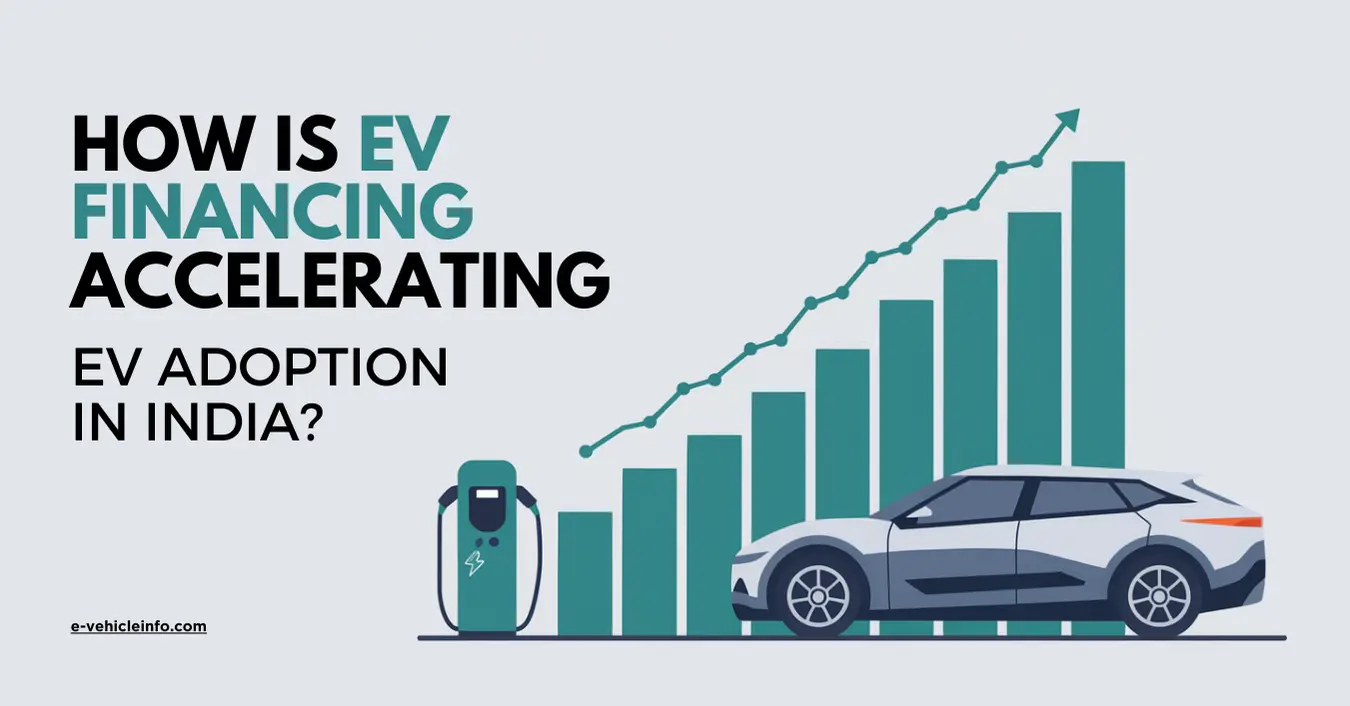
The government of India in this regard has set an ambitious target of achieving 30% electric vehicle penetration by 2030.
However, the high upfront prices of EVs remain a considerable hurdle for widespread adoption.
To overcome this barrier, EV financing has emerged as a key enabler for driving EV adoption in India.
EV financing comes as the provision of loans or other forms of financial support to facilitate customers to purchase EVs.
These financing solutions can be delivered by banks, non-banking financial companies (NBFCs), or other financial institutions.
The availability of Electric Vehicle financing has played a pivotal role in making EVs more affordable and accessible to a broader range of customers in India.
One of the most considerable advantages of EV financing is that it enables customers to pay for their EV over an extended period, making it more affordable.
These financing options are tailored to offer customers flexible payment options that best meet their budget and financial condition.
This flexibility enables more customers to switch to EVs without having to bear the burden of a high upfront cost.
Additionally, EV loans often come with lower interest rates as compared to conventional auto loans, making them more affordable.
These financing options also come with compelling incentives, like tax breaks and subsidies, making them even more cost-efficient.
A range of banks and NBFCs in India are now offering specialized EV financing options. For instance, the ICICI is offering loans for EVs at a lower interest rate compared to traditional auto loans.
Similarly, Bajaj has unveiled a specialized EV financing scheme that provides loans at competitive interest rates and flexible repayment terms.
In addition to banks and NBFCs, multiple automotive manufacturers are also offering financing options for EVs.
Automobile players like Mahindra Electric, Tata Motors, and Hyundai offer attractive financing schemes for their EV models which have immensely contributed to driving their sales.
According to a report by the Society of Manufacturers of Electric Vehicles (SMEV), the number of EV four-wheelers sold in India increased by more than half in the financial year 2020-21 compared to FY 19-20.
This growth can be attributed to the availability of EV financing options, which have made them more affordable and accessible to a wider range of customers.
Yet, despite the encouraging growth, several challenges need to be mitigated to enable EVs to become mainstream.
One of the substantial challenges is the absence of awareness about EVs and EV financing options among consumers.
To address this, the government along with other stakeholders needs to undertake more extensive awareness campaigns to educate consumers about EVs and their financing options.
Also, the need of the hour is to bolster investments in charging infrastructure, which is critical for the widespread adoption of EVs.
The government needs to offer more incentives for the development of EV charging infrastructure, making it more accessible to customers.
With the advent of innovative financing models and growing support from the government and financial institutions, the future of EV adoption in India looks promising.
With more individuals recognizing the benefits of EVs and the country moving towards a greener future, the demand for EV financing is expected to further surge.
However, the success of EV financing will depend on the capability of stakeholders to provide customized solutions that cater to the unique needs of EV buyers and align with the country’s sustainable development goals.
This post was last modified on September 12, 2024 11:49 am
In a major stride toward sustainable mobility, the Himachal Pradesh Police have incorporated six custom-modified Tata Curvv electric vehicles into…
In India, the automotive and transport industry is undergoing significant changes. This transformation isn't just about improving roads and infrastructure;…
Montra Electric, the clean mobility brand from the prestigious Murugappa Group, has launched the All-New Super Auto, a next-generation electric…
Union Minister Nitin Gadkari (Minister of Road Transport and Highways of India) has once again made a bold statement that’s got…
India’s electric four-wheeler (E4W) market slowed in September 2025, following a record-breaking August, with 15,038 units sold, representing an 18%…
India’s EV market hit 1,04,056 electric two-wheeler sales in September 2025. TVS, Bajaj, and Ather led the chart, while Ola…
This website uses cookies.